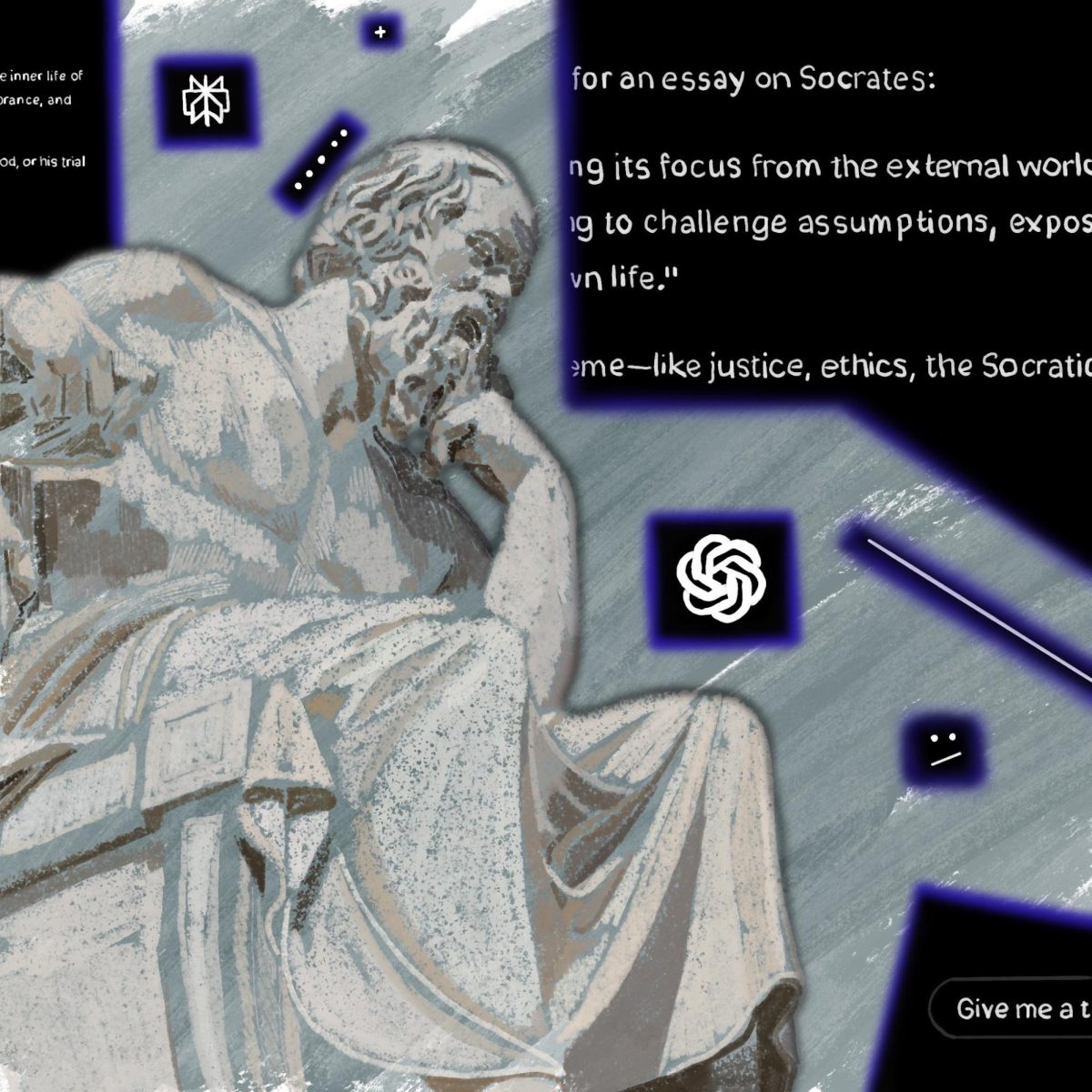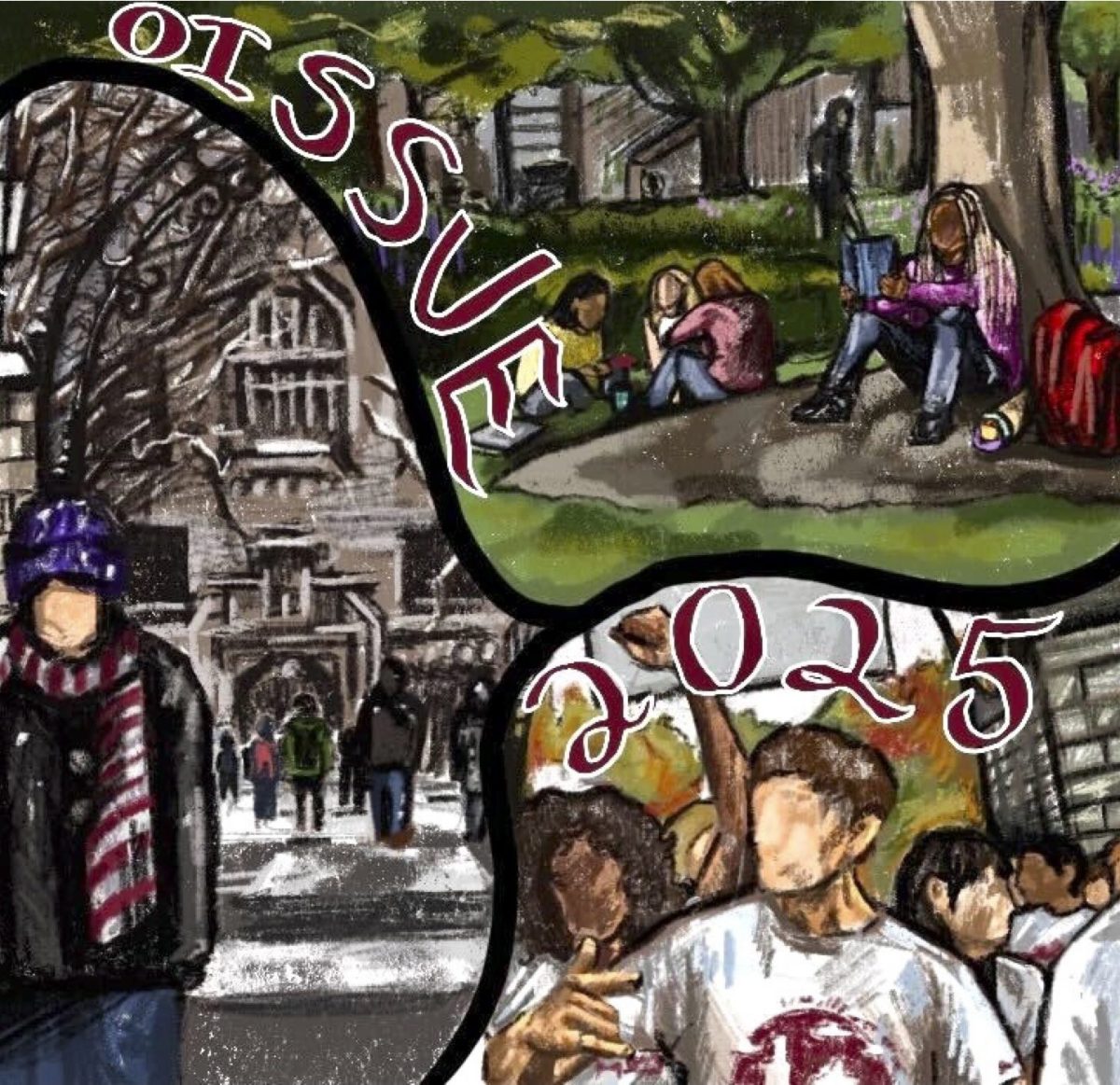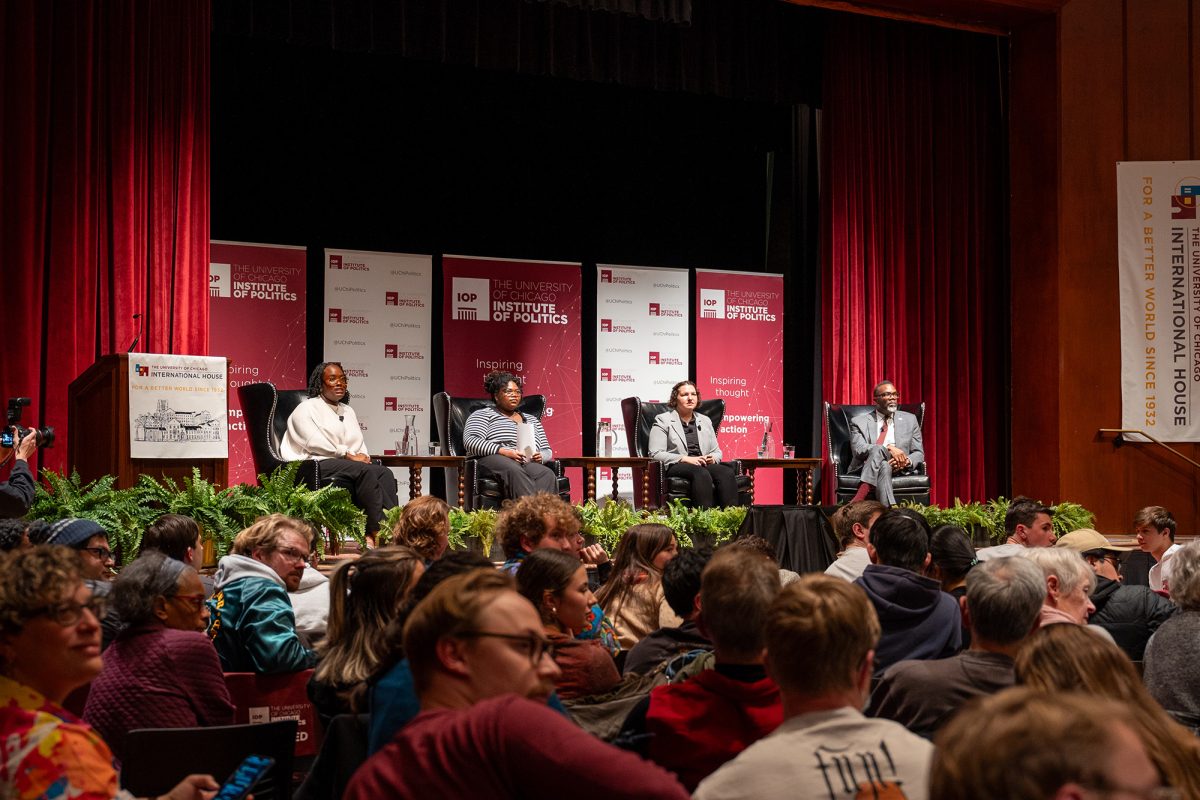The 2024–25 school year has demonstrated a significant increase in the use of AI, particularly in school settings. In some departments, professors and administrators are shifting from anti-AI to AI-disclosure policies. OpenAI is even partnering with the California State University (CalState) system to provide an education-specific model for over 500,000 students, faculty, and administrators across 23 campuses. Meanwhile, other universities and many creative disciplines are still struggling to understand the ethical and practical implications of AI usage in academics.
In short, universities like UChicago are having an existential crisis on how to balance one of their core tenets—learning for learning’s sake—with “preparing” students for an AI-driven future. This is a future that could very well make higher education a less economically advantageous decision if the work done in high-paying jobs can be accomplished using AI. In that confusion, UChicago and many other institutions of higher education are leaving AI policy up to individual departments and professors, refusing to set concrete guidelines. And without clear policies and moral stances, and with no true way to detect AI usage in the classroom, students are left to decide for themselves how and when to use AI. But despite growing incentives to utilize large language models (LLMs), both incoming and returning UChicago students must resist efficiency in favor of inefficient but critical college writing that drives inquiry and is the foundation for a life of the mind.
Of course, amid a lack of defined policies, failure from professors to detect AI, and weakening arguments that AI produces mediocre slop—though it often does—there are an abundance of incentives to utilize artificial intelligence in everything from essay-writing to RSO event planning. Students are left entirely to their own devices in deciding how they will interact with AI. Simultaneously, with AI checkers consistently delivering both false positives and false negatives, students risk little retribution from the University. Though punishments for plagiarism can go all the way up to expulsion, and many teachers are, according to multiple students, falsely overreporting cheating, there is still almost no reliable way to detect the use of AI.
Additionally, at a school like UChicago, where students learn at a breakneck pace, RSOs are a career necessity, and efficiency is the mindset of an economics-dominated campus, students might fear falling behind as they see their peers generate A-minus-level papers in seconds. AI poses an easy off-ramp for overexerted students and for incoming freshmen who must quickly adapt to UChicago’s academic rigor. And given that only 6 percent of students from the class of 2024 planned to enter the arts upon graduation, many at UChicago have reason to believe they’ll never have to write again. But even for those outside of the humanities, bypassing college essay writing sidesteps fundamental critical thinking and points toward a worrisome shift in values on a greater academic level.
Writing is a mode of deep learning across all disciplines. Just as with p-sets or presentations, writing prepares students for in-class discussions, helps them develop and articulate their thoughts, and forces them to complete (at least segments of) assigned readings. Offloading writing to LLMs simultaneously offloads the critical thinking that allows us to adapt our thesis given new evidence and analyze counterarguments as they arise. After spending three years at UChicago and writing over 80 essays and discussion posts—assignments ranging from 100 to 10,000 words—I know I’m most engaged with and knowledgeable of texts when forced to complete writing assignments.
And yes, at a school like UChicago, where we memorize one another’s GPAs and drop classes that will hurt our 4.0s, it can be daunting to see others glide through essays with just a few prompts. But as students acquire higher grades with less effort, they also risk losing the pride of making progress over a quarter or submitting that last assignment during finals week.
Even if our hard work falls short of our expectations, college is the only time we’re allowed and supposed to make mistakes. Some teachers now even suggest they don’t want perfect essays, noting that the introduction of LLMs is liberating as it allows students to break away from the 5-paragraph essay in favor of more experimental, analytical work. For other classes, with some teachers returning to the blue book, AI writing is a crutch that quickly crumbles when professors decide to crack down on AI usage.
On top of this, some still might argue that spending less time writing allows students to focus on the things they really care about, like extracurriculars or courses in their major. Immediately, one might ask, “Why did you come to UChicago, known for its Core Curriculum, if only to breeze through hum and sosc?” At a school that touts learning for learning’s sake and promotes dining hall conversations debating The Second Sex, offloading slow, intentional learning is not just a question of time but of values and educational aims.
Which leads to a secondary question: Would we actually dedicate our time to “more important” matters? This summer, while painting with watercolors in a park with a friend, a woman stopped to comment on our paintings. In the conversation that followed, we learned that the woman worked at OpenAI, investigating how students can utilize the service in their studies. When I told her about my class in which all students were tasked with using an LLM for homework, resulting in midterm and final exam grades so poor that the entire class received a letter from the program’s dean, she asked if those students were at least able to spend more time in their areas of interest. When I told her that this course was a public policy major requirement, she paused, and I felt I had overstepped. We moved on to the next topic.
So, while some individuals may use this extra time to pursue their passions or dive deeper into their majors, studies suggest that students at some elite schools may just be spending more time on preprofessional endeavors and extracurriculars. In 1961, full-time students spent about 24 hours per week on homework, according to a study by two economists. At the time of the study’s 2010 publication, that number was around 10–15. While less time spent on homework sounds positive to some, when students use that time not toward learning but career planning, it feeds into a greater shift in university culture from academia to pre-professionalism.
Of course, colleges are simply responding to an increasingly competitive job market, forced to emphasize job acquisition over learning broadly and deeply. Globally, just like CalState, colleges are partnering with tech giants and spending more on career advancement. Here at UChicago, the University Division of the Arts & Humanities has recently revealed that it is aiming to restructure its 15 departments into eight. In the face of these larger decisions, students must deliberately choose to value the expansive and deep learning that has long characterized UChicago. Because when students choose efficiency, offloading the often most laborious but also most critical and analytical tool universities provide—the college essay—they risk buying into a complete shift in values.
Coincidentally, despite this threat of consolidation, UChicago is simultaneously implementing a new credit-bearing writing course to the Core. In a phone interview, Executive Director of the Writing Program Abigail Reardon noted that most of UChicago’s peer institutions have credit-bearing writing courses, emphasizing that “[UChicago] students deserve more time to develop fundamental writing skills and think about how writing in general is relevant for all disciplinary pursuits.” The move to establish this course—Writing 101: Inquiry, Conversation, Argument (ICA)—is both meant to improve students’ writing capabilities and “signal, as part of the College’s commitment to the Core, the important role that writing plays in thought discovery, in contributing to intellectual conversations, and in developing one’s voice.” Reardon later expanded, noting that the course aims to provide “a sustained occasion to play with the pleasures and the value of inefficiency.”
When I asked Reardon if there were discussions about implementing this course into a progressively AI-driven professional landscape, she acknowledged the dual importance of learning for learning’s sake as well as preparing students for careers that utilize AI but concluded that she was hopeful that “there is a way to acknowledge both goals and to help students see how attention to the slowness and messiness of learning via writing is going to put them in a better position to think about complex problems and enrich their professional work.”
The course is an exciting development for the College in asserting its commitment to the Core and to intellectual experimentation and growth. Still, even that course isn’t yet in full swing. ICA is currently in its pilot phase, with only students in the Human Being and Citizen sequence taking ICA as their Core writing requirement this year. The Core writing requirement will not be entirely disentangled from hum and the new course fully established in the College for at least another year or two. And even then, ICA alone cannot resolutely establish a University-wide commitment to writing as a mode of learning.
So, without concrete guidelines or moral standings, students are faced with the choice of how and when to use AI. And while utilizing AI may seem like a tantalizing off-ramp to the hyper-stressed UChicago culture, students must make this decision with care. Delegating college writing to a word generator might not just mean less time spent on an essay, but a loss of critical thinking, and maybe even a complete shift in values. College is a time to explore and learn before facing the rigidity and linearity of a career, so make mistakes, take your time, and write your sosc essay while you’re lucky enough to have peers and professors dedicated to helping you grow.
Camille Cypher is a fourth-year in the College.



















